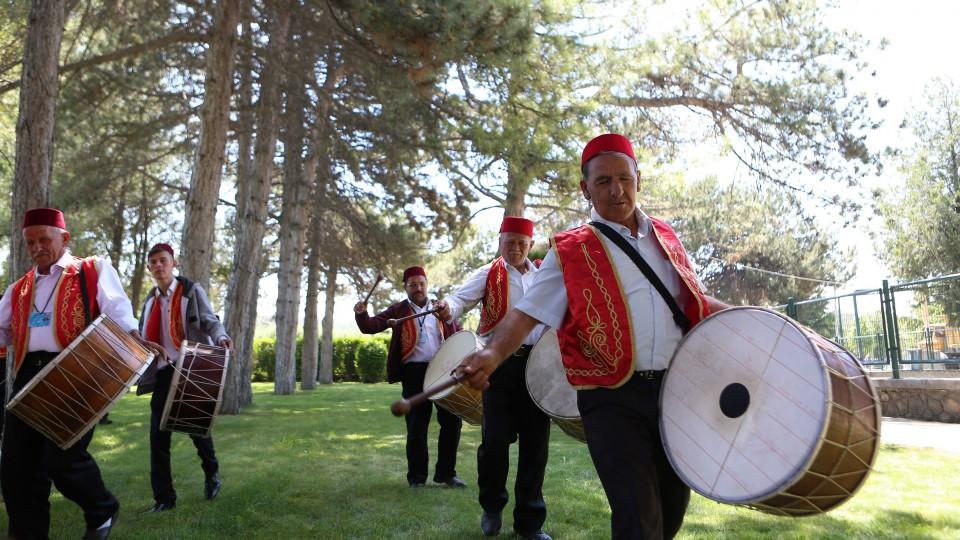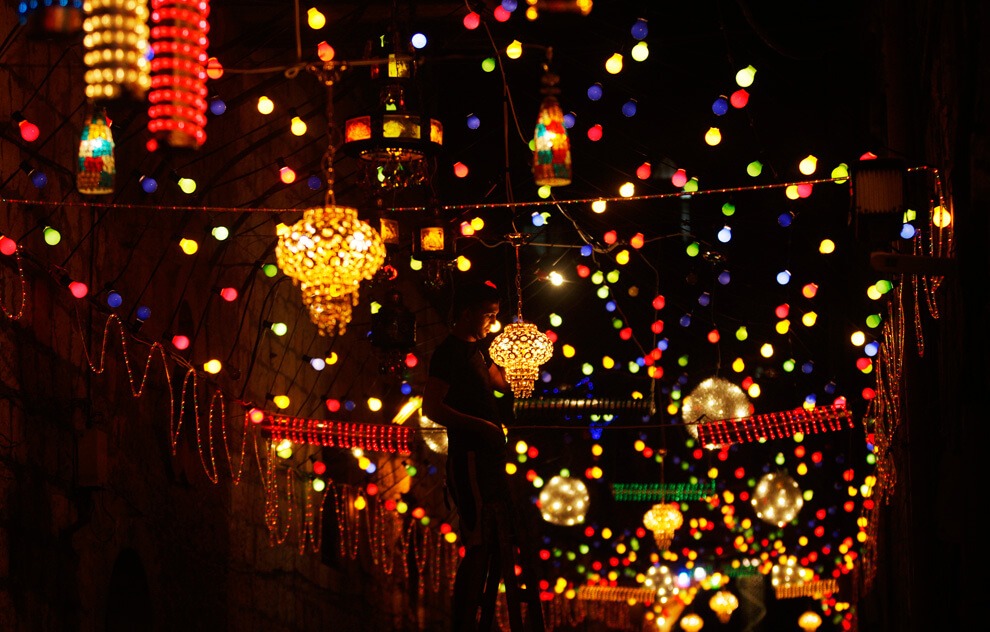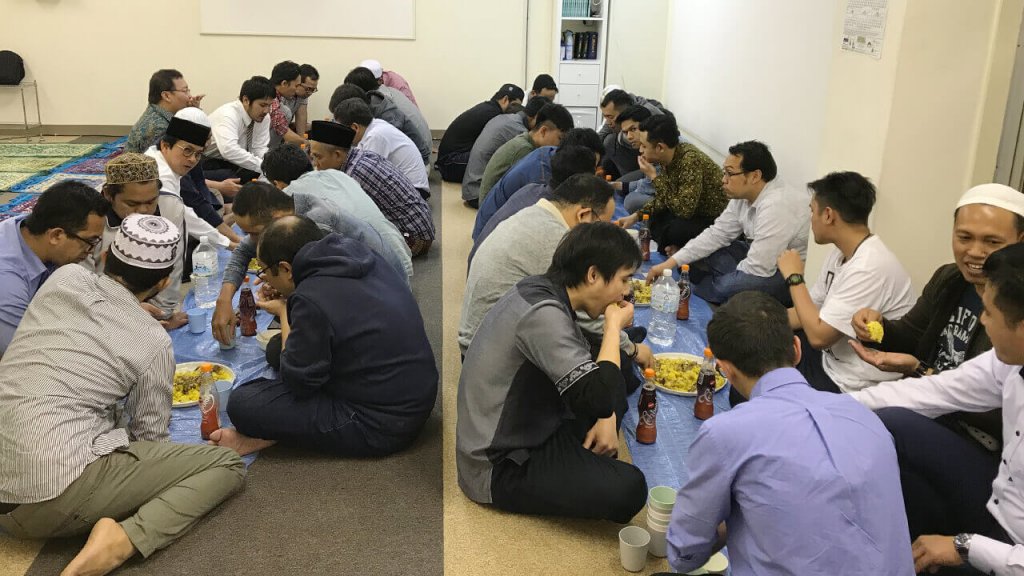Greetings, fellow learners! How have you been doing in the past few weeks? And for our Muslim learners, are you doing good with your fasting? Even within the current pandemic, Engliven will never stop cheering all of you in these difficult times. Therefore, we’d like to share some things to enrich your knowledge about unique Ramadan traditions from around the world!
That’s right, it’s about the holy month of Ramadan! Or more precisely, the unique Ramadan traditions that people have around the world. Well, since there are diverse Muslim societies around the world, they must have different traditions from one another. But what are they?
In Indonesia, date fruit and kolak (Indonesian dessert made of coconut sugar and coconut milk) are usually popular for iftar during Ramadan. But maybe, this is not the case in other countries. Let’s take a look at different and unique Ramadan traditions in no particular order below!
Ramadan Uniqueness in Turkey

Firstly, let’s take a sneak peek at Turkey!
Turkey is famous for being one of the most notable Muslim countries in the world. With its prominent heritage from the Ottoman Empire, Turkish culture is closely related to the Islamic culture. Many Ramadan traditions that are unique in Turkey still persist to this day because of this, including sahoor!
So what is sahoor? It is the last meal that Muslims have before they start their fasting during the day. While sahoor itself is obliged for all Muslims, Turkey has a unique way to spice it up. Before sahoor starts, drummers will march in the streets to wake people up from their sleep!
This is a tradition which came from the era of the Ottoman Empire. Since there were no alarm clocks in that era, drummers were tasked to wake people up to do sahoor! It might have been shocking at first, but it feels unique, nonetheless. This is a creative tradition that Turkish Muslims still uphold with full pride today.
Mesmerizing Ramadan in Egypt

Now, let’s move up a bit to Egypt.
Egypt is a nation famous for its rich history. From the times of the Pharaohs, the Islamic caliphs to the modern era, Egypt resides as a culturally prominent country in the world. Because of this, the Islamic culture in Egypt still continues to inspire similar celebratory traditions of Ramadan in other countries as well.
Since Ramadan means a month of celebration for Muslims in Egypt, it is obvious that Ramadan traditions there are equally famous. Fanous, or Egyptian decorative lanterns, is one of the most famous Ramadan traditions in Egypt. Muslims have well-preserved this tradition since the times of the Fatimid Caliphate, where these lanterns are highly symbolic during Ramadan. For them, these lanterns symbolize the joy and cheerfulness of Muslims during Ramadan.

Another peculiar tradition in Egypt is the Ramadan cannon. This is unique because cannons (as most people know) are only allowed to be used by soldiers, so this is very unique in Egypt. Although there are many accounts about the origin of this tradition, there is one particularly-accepted origin. In 1465, the Egyptian Mamluk governor Khoshkhadam commenced a trial shot of a new cannon on the sunset of the first day of Ramadan. People around Cairo mistook the cannon’s sound as the sign of iftar time. Surprisingly, the people praised the governor for his accidental solution for iftar time, in a time where alarm clock hasn’t been invented.
Long Fasting Time in Russia

Next one is Russia!
Traditionally, Russia is a large country with so many ethnic groups, almost similar to Indonesia. From the Russian Orthodox Church to Islam, there are many religious groups in Russia as well. And compared to other countries, Russian Muslims usually fast longer than elsewhere. How could this be?
This is because of that the Ramadan schedule changes each year. Not to mention, a country’s location on our planet can also greatly affect the duration of fasting during Ramadan. If it’s summer in Northern Hemisphere countries (such as Russia and Scandinavian countries), Muslims will have to fast for about 12 until 20 hours, or more! Is it shocking? Well, Russian Muslims have the solution to deal with this, luckily.

While there are numerous Muslim communities in Russia, there are several kinds of dishes that they usually eat during sahoor. One of the most indispensable food item for them is the famous Russian black bread. The main ingredient of this bread is rye, a type of wheat commonly consumed in Russia. This bread fills the stomach longer than your usual bread, so it’s really useful for Muslims in Russia to endure their fasting for the whole day!
Other than black bread, Muslims in Russia also eat and drink sweets from fresh or dried fruits. While they regularly eat meat and vegetables too, they need an additional energy source to sustain them during the day. Therefore, it is a common sight where Russian Muslims drink kvass (a Russian fermented drink from rye bread with fruit flavours) and many other sweets!
Ramadan Peculiarities in Japan

Last but not least, let’s talk about Japan too.
To be honest, Japan is not a country that is usually familiar with Islam and Muslims in general. Muslims in Japan are considered as a religious minority when compared to the more abundant Buddhists, Shinto worshippers, and Christians. But even so, this creates a unique way of adapting for Muslims who live in Japan. So how is Ramadan practiced in Japan?
Unlike in other countries, there are no large-scale Muslim communities in Japan. Muslims usually come from other countries to Japan either for education or work. Therefore, Muslims from these countries usually group with friends from their own country, although they usually try to share Ramadan happiness with everyone.

Since Japan usually does not decrease the working hour for Muslim employees during Ramadan, they have to adapt to this situation. But luckily, some companies can minimize their working hours to respect their employees’ needs. And because fasting in Japan during Ramadan can take up to 16 hours during summer, it is quite a challenge for Muslims who live there.
During iftar, Muslims usually come home earlier from work and break their fast in their homes or in the mosque. It is a common sight where Muslims in Japan open up food stands in community centres and mosques. There, Muslims and anyone else can try culinary delicacies to either break their fasting or just to try some tasty foreign cuisines!
Also, we’ve got a table of difficult vocabularies for all of you to enjoy below:
| English Vocabulary | Arti Dalam Bahasa Indonesia |
| prominent | menonjol |
| accounts | gambaran cerita |
| indispensable | tidak bisa ditinggalkan, sangat diperlukan |
| abundant | banyak, melimpah |
| delicacies | makanan lezat |
Now then, have you enjoyed your reading about unique Ramadan traditions here? Can you mention or tell us about other unique Ramadan traditions both around you and around the world? Be sure to comment in the comments below and check other interesting articles from our blog!
Quiz!
Other than commenting about unique Ramadan traditions that you know, we’ve got a quiz in here too. Answer them in the comments below:
- What is “Lebaran” in English?
- What is “mudik” in English?
- Translate this phrase into English: Setiap setahun sekali, Tomo dan keluarganya mudik ke kampung halaman di Jogjakarta untuk menjenguk dan bersilaturahmi dengan keluarga besar mereka.




